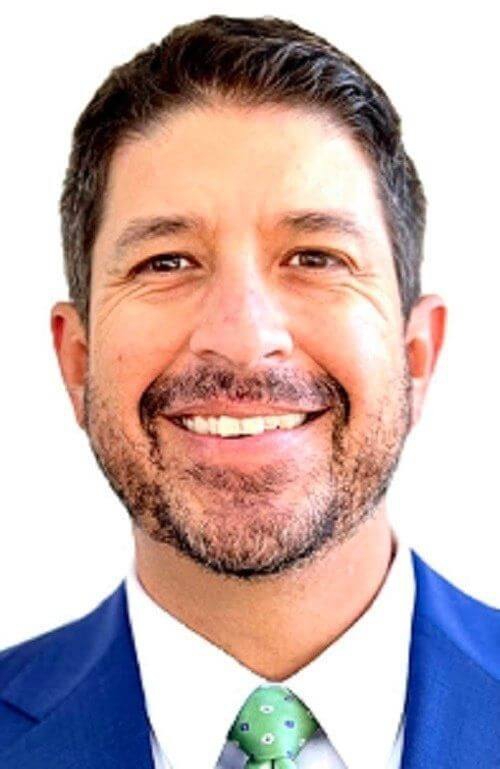The Constitution of the United States says that Grand Juries must be used for all capital and infamous crimes. What this means is that all federal felonies must be charged by a Grand Jury (the charging document is known as an Indictment) unless a defendant waives their right to be charged by indictment of a Grand Jury but rather elects to plead to, and be charged by, Information. It is important to note that Grand Juries do not determine whether someone is guilty of the crime charged, but rather whether probable cause exists to indict. In the criminal justice system, all people accused of a crime are presumed innocent until they either plead guilty or are proven guilty beyond a reasonable doubt at trial.
If you are here today because you are feeling anxious about receiving a grand jury subpoena and need more information, we can help. Get started by filling out our contact form or by calling our office, (305) 707-7345, to schedule your Free 4-Point Case Evaluation and Defense Strategy Session.
What is a Grand Jury?
Federal Grand Juries are made up of citizens chosen by the court. Unlike traditional juries that sit to determine facts during a single trial, grand juries meet for an extended period of time and review numerous cases. Grand juries sit in an investigative capacity and in order to further its investigation have the power to issue subpoenas for either documents or witness testimony, or in some cases both. The subpoenas are issued at the request of the government.
Depending on how busy a given district is, there may be more than one grand jury sitting at any given time. That is often the case in larger federal districts, while smaller federal districts will only have one grand jury sitting at a time. Depending on the criminal caseload that may exist in a particular district, grand juries may meet every two weeks or even monthly. At the end of its session, the Grand Jury will vote to either approve the indictment or disapprove of the indictment. If the Grand Jury approves, a True Bill is returned. This occurs when the Grand Jury has determined that probable cause exists to believe that the investigated crime has been committed. Once this occurs individual(s) will be indicted (charged with a crime(s)). If the Grand Jury disapproves, then it will issue a No Bill and no indictment is filed (no charges).
Grand Jury Subpoenas
Grand Juries may determine that for a given person, they would only like to review documents, pictures, videos or other tangible evidence. Other times, a Grand Jury may determine that it wants to hear testimony from a given person. There are two types of grand jury subpoenas and both require the person who receives the subpoena to respond.
Subpoena Duces Tecum – This type of subpoena issued by a Federal Grand Jury requires the person who receives the subpoena to provide tangible evidence as a response. When issuing a subpoena duces tecum a grand jury can be seeking documents, pictures, video, recordings, corporate documents, email communication, accounting statements or bank records.
Subpoena Ad Testificandum – Should the Grand Jury want to hear from someone that they feel will aid its investigation, they will issue a subpoena ad testificandum. This type of subpoena will require someone to actually testify before the Grand Jury.
I Received a Grand Jury Subpoena, Now What?
There are essentially three things that you can do after receiving a Grand Jury subpoena.
Ignore – Similar to any subpoena, a federal Grand Jury subpoena should not be ignored. The government (prosecutor) can ask the court to hold you in contempt. It is difficult to find extraordinary circumstances that may justify your refusal to comply. If justification cannot be provided, a court can order jail time for ignoring a grand jury subpoena.
Comply – Compliance can be somewhat confusing as complying with a Federal Grand Jury subpoena is in fact mandatory. While most people simply comply with the demands of a subpoena, there may be other options, or ways of complying, that an attorney can help you with. There may instances where subpoenas seek massive amounts of information or potentially incriminating evidence. In these instances, it may be best for your attorney seek a partial challenge.
Challenge – There are instances where the person who receives the subpoena does not have knowledge, or possess the information sought, has nothing to do with the case or is being asked to reveal information that is confidential or privileged. When this happens, your lawyer needs to file a motion asking the court to quash the subpoena, limit/reduce its scope or declare the subpoena null and void.
Grand Jury Gathers Evidence
Much like a jury of your peers when you are standing trial, federal grand juries consist of lay persons and not law enforcement officers and/or prosecuting attorneys. It is with the assistance of the government prosecutors and federal agents mired in the investigation, that the Grand Jury takes its direction as to how the investigation is conducted. While it is the decision of the Grand Jury to determine whether someone is to be indicted, the government is using the Grand Jury to further criminal investigations. While a sitting grand jury is reviewing a case, investigators will make presentations to the Grand Jury that highlight, or point them to, certain pieces of evidence received pursuant to the issued subpoenas. Grand Jurors may ask questions of testifying witnesses and the government.
Should You Testify Before a Grand Jury?
Receiving a subpoena from the Grand Jury forces you to testify. It is important to note that many people that receive a subpoena to testify before the Grand Jury do not have criminal exposure. However, you should consult with an attorney immediately upon receiving a grand jury subpoena as there are times when someone may be considered to be a subject or a target of a criminal investigation. In this instance, it is best to have an attorney handle this unique problem on your behalf.
Given Constitutional protection against self-incrimination, the government will not force a target of an investigation to testify before a Grand Jury. However, there are instances where targets of investigations choose to testify voluntarily. In order to do so they will have to waive their right against self-incrimination. Although you are voluntarily choosing to testify and waiving your rights, you should consult with an attorney as doing so can be detrimental. Targets are advised that the Grand Jury is conducting a criminal investigation (whether a violation of federal law occurred) and that anything that is said may be used not only by the Grand Jury but in subsequent criminal proceedings.
Have You Been Charged With A Federal Crime?
If you've been charged with a federal crime you need to speak with an experienced federal crime attorney as soon as possible. Contact me online or call me at my Miami office directly at 305.707.7345.
|
Related Links: |


